Hey buddies!
We IEEE SB GCEK have officially come with our first monthly newsletter. Prior to the thought of the newsletter, what we always wanted is to build strong communication and impact on our members. And we knew that newsletter would be a great choice to reach our members on important matters and opportunities.
So here we go with our first edition of Tidings. Read and inform yourselves. And since this is our first edition, we are open to feedback and do let us know what you expect more from us!
IEEE SB GCEK - ExeCom 2021-22
🍽 What's Cooking
In this section, we bring you some updates and news from the SB and from IEEE that you must know.
⭕ June 5 - Back to the roots
June 5 is a special day for us. The IEEE Student Branch of Government College of Engineering Kannur marked its opening on 5th June 2009 with an aim to provide a platform for students where they can develop co-curricular skills and to ensure comprehensive development and progress of students.
Twelve years after its inception, the student branch has grown into a large fraternity by helping each other to venture out into new possibilities and to contribute to IEEE’s vision of advancing technology for humanity.
⭕ June 20, PELS Day
20 June 2021 marks the third annual PELS (Power Electronics and Society) day. It’s on this day in 1987 PELS became a full-fledged society within the IEEE. Since its inception in 1987, PELS has become one of the fastest-growing technical societies under IEEE and has constantly contributed to the development and innovation in Power Electronics.
The PELS chapter of IEEE SB GCEK came into existence on March 11 2019. This year too, as part of PELS Day celebrations our SB is planning to conduct a number of exciting events, the details of which shall be announced soon.
❗❓ Did you know?
Our PELS Student Branch Chapter is the largest IEEE PELS SBC in the world! 🥳
⭕ The June edition of IEEE Spectrum is out!
To know the trending innovations changing the world, check out the latest IEEE Spectrum magazine here.
👋 We are on Club House now!
Check out our club and join us on Club House here.
🔹 Catch the drift 💨
Technology is evolving so rapidly that it sometimes feels a bit tricky to get hold of it. So here we are to make you informed about new technologies that will make you catch the drift.
In the first series of Catch the Drift, we bring you a series of blogs about Cryptocurrency.
💹 CRYPTOCURRENCY
Cryptocurrency is the new buzzword. Imagine you are having a conversation with your friends. Now at some point in this conversation, someone’s going to bring up cryptocurrencies. So let’s find out what exactly it is.
Since man evolved, the currency has been a very important part of our lives. In the caveman era, they used the barter system. The barter system fell out of use because it had some glaring flaws. After this, the currency went through a few iterations. In 110 BC an official currency was minted. From 1600 AD to 1980 AD, the paper currency gained widespread popularity and was used across the world. This is how modern currency as we know it came into existence. Modern currency includes paper currency and coins, credit cards, and digital wallets like Apple pay, Amazon pay, Paytm, PayPal, and so on. In this system, there are several ways the transaction could go wrong: a technical issue at the bank, the users’ accounts getting hacked or the transfer limits for the account exceeding. This is why the future of currency lies with cryptocurrency.
Imagine the transaction between two people in the future, one of them has the bitcoin app and there’s a notification asking whether they’re sure they’re ready to transfer 5 bitcoins, if yes, processing takes place. Here we are authenticating the user’s identity, checking whether they have the required balance to make that transaction and other things. Once this is completed the payment is transferred and received at the other end. All of this happens in a matter of minutes. This in turn removes all the problems of modern banking. There are no limits to the funds that can be transferred, the accounts can’t be hacked and there is no central point of failure.
As of 2018, there are more than 1600 cryptocurrencies available. Popular cryptocurrencies include Bitcoin, Litecoin, Ethereum, and Z-Cash. Considering the current growth, there is going to be plenty more to come in the upcoming years. So what exactly is cryptocurrency? A cryptocurrency is a digital or virtual currency that is meant to be a medium of exchange. It uses cryptography to work the way it does and unlike the modern currency, it doesn’t have any physical embodiment. There is a limit to how many units can exist, with bitcoin this limit exists at 21 million, after this no more bitcoins will be produced. One can easily verify the transfer of funds, the hash algorithm bitcoin uses makes it very easy for users to determine whether a transaction is valid or not, they operate in a decentralized manner. New units can be added only after certain conditions are met, for example: for Bitcoin, only after a block has been added to the blockchain will the miner be rewarded with bitcoins and this is the only way new bitcoins can be generated.
So what makes cryptocurrency so special? Firstly there are little to no transaction costs, you have 24/7 access to money, there are no limits to purchase and withdrawals, there is freedom for anyone to use, international transactions are faster. The “crypto” in cryptocurrency refers to cryptography, a method of using encryption and decryption to secure communication in the presence of third parties with ill intent. Cryptography usually requires a computational algorithm (like SHA256), a public key (that the user shares with everyone), and a private key (which acts as a digital signature of the user).
The whole world is divided when it comes to cryptocurrencies. On one side you have supporters like Elon Musk, Bill Gates, Al Gore, and Richard Branson who say that cryptocurrencies are better than regular currencies. On the other side, we have people like Warren Buffet, Paul Krugman, and Richard Schiller call it a Ponzi scheme and means for criminal activities. In the future, there is going to be a conflict between regulation and anonymity. However, futurists believe that by 2030 cryptocurrencies will occupy 25% of national currencies which means that a significant chunk of our population will believe that the future of currency lies with cryptocurrency.
🔔 Stay tuned for our next edition to learn more about cryptocurrency.
🤝 Rendezvous
Hearing from people who have traversed through the same path as us is always a great experience. So here is Rendezvous; a brief interview from the alumni of GCEK.
In this Rendezvous, we talked with Mr Hadi Abdulla N, an alumnus of GCEK (2k16 ECE batch) and an active IEEE member. Let’s take a walk through some bits of his life.
❓ Why did you choose to study engineering? Was it an informed decision? Was being an engineer your dream from the very beginning?
✅ I wasn’t much interested in biology and I had a craze for engineering right from my high school itself, even though I didn't have good knowledge of it. I completed my high school education at Technical Higher Secondary School Vazhakkad, where I started learning more technical subjects like computer science, electronics and electricals etc. By then, I was determined to take up a career in engineering. Now that I’ve completed my B. Tech, I’m happy and proud that I could fulfil my dream.
❓ What did your college life teach you?
✅ My college life made me the person I am today. I wasn’t an active person till my class 12th. But my college life brought a drastic change in me. I found the fun in making friends, volunteering and participating in events. I realised that we need to hunt down opportunities. I became aware of utilising every opportunity before me. Many of my perspectives on life changed altogether.
❓ What do you do now? Where do you work and what organisations are you involved in?
✅ Currently, I’m working as an Application Developer at Deepflow Technologies, which is a prominent startup rooted in GCEK. It is an advancing company and I’m really proud to be a part of it. I’m also the Joint Secretary of RFID Council, IEEE Kerala Section, and an IEEE Young Professionals member.
❓What influenced you to take an IEEE membership?
✅ It was in the IEEE Membership Development session during my first year when I came to know about IEEE. It was Ashique, the then chairperson who motivated me to attend the session. That session was really inspiring. I came to know about the various opportunities that IEEE provides, the regular exciting events organised and all the fun these people have together.
What struck me the most was a chance to travel across and visit other colleges and make friends with many people. And most of all, IEEE, being a worldwide organisation, presents the whole world before you to work with, travel, meet and make friends. That was the turning point of my college life. The opportunities I got from IEEE are priceless.
❓ What are some of your good and bad experiences while being an IEEE member?
✅ There ain’t any bad experiences but many good ones. Each event used to be a journey. Going to places for the events, meeting new people, volunteering and coordinating with them, each was new and good experiences. Being the SB Vice-Chair, being in the IEEE LINK team, making new friends, all gave me an opportunity to explore new things. One of the long journeys I remember was to Hyderabad for an event that lasted for 4-5 days. That event was one of the best memories. Basically, the travelling I did was the best experience.
❓ What are the technical and non-technical skills you gained from IEEE?
✅ I got rid of stage fear, I think that is my best achievement on the non-technical side. I got to enhance my management skills, leadership skills, organizing skills etc. I learned to coordinate an event successfully.
I did learn many technical skills too. There was this competition called MAD-C which was a mobile application development competition. I wanted to participate in it. That’s how I tried my hands on app development. I was able to boost my coding skills by participating in similar competitions. Another skill I learnt is designing. I designed posters for various SB events and I was also assigned as the ECC in Malabar hub which gave me more opportunities to explore designing.
❓How beneficial is IEEE after college? Did IEEE help you in reaching where you are now?
✅ As I have already said I learned a lot through IEEE and you can learn too. These skills will provide you with a wide range of career opportunities. If we look at other sections we’ll see that they have more professional members than student members. So after college, you can continue with IEEE as a Young Professional. You can make a lot of connections with people through attending or organising various IEEE events which may prove to be useful in future whether it be in finding a job or to organise events.
❓ What message would you like to give to the other IEEE members? How to seize more opportunities that favour our career?
✅ I would like to remind all the IEEE members that just being a member is not enough. A lot of opportunities are going to come your way and you should grab them and never miss one. Don't be a passive member, be enthusiastic and try to participate in events, even in those which you think are not your thing. You may not win but you will definitely learn something. You’ll be able to enhance your communication skills, management skills and your technical skills, which will favour your career and your life.
❓ Do you have a role model? If yes, who is it? And how did he/she inspire you?
✅ I do have a role model - Dr APJ Abdul Kalam. He is the reason why I chose the electronics field and he is the one who made joining ISRO my dream.
He was someone who started from scratch and became the president of India with sheer determination. He was someone who would never quit. He has inspired me since childhood and he taught me to not give up even in the worst adversities.
❓ What do you think about the current education system during this pandemic? Do you have any advice for students on how to cope with the highly competitive world and a demanding industry?
✅ I was lucky enough to finish my studies before the pandemic. So I can't talk from personal experience. But I have heard that it is quite difficult and demanding more effort and stress. I would just say that you should not limit your learning to your syllabus. Try to learn new things in your interested fields. My only tip is to grab any opportunity you come across even if it is a simple task like giving feedback on an event. At the first time, you may not have a lot to say but a few words. But the next time it would have a few sentences and then later on it may be a long speech. This simple task will help you to get rid of your stage fear. So grab any opportunity that comes your way, however small it might appear, because small opportunities are often the beginning of great avenues.
🏫 Epistemology
Whatever the skill be, you master it only when it is applied to real-life problems or when you get hands-on experience with it. Here is epistemology to guide you through some great resources on the web to get good at something :)
💻 Learn Coding By Yourself! - A Guide For Beginners
Are you a person who wants to learn to code by yourself but don’t know how to start? Well, take a look at this blog by Free Code Camp on how we can pick up knowledge in coding in an organized way.
https://www.freecodecamp.org/news/the-self-taught-developers-guide-to-coding/
📝 Here are our five key takeaways from the blog:
Pick a niche:
When you begin your self-taught developer journey, it is important that you choose a proper specialisation so that you can focus on a small subset.
Find structured learning resources for your niche:
Make a list of topics/technologies you'll need to master for your specialisation and locate structured learning resources in those areas.
Learn:
The first step is to schedule time for learning. You should also make weekly goals to hold yourself accountable for effective learning.
Building something:
Try to build something with the knowledge you have gained. It is important to constantly switch between learning and building.
Network:
Increase your network by joining a community, clearing doubts in social media or by means of other connections etc. Github and LinkedIn are great platforms to show your skill and increase your exposure.
So roll your sleeves up and start coding right away!
🌐 Google I/O is back!
Google IO is Google’s annual developer conference. "I/O" stands for Input/Output, as well as the slogan "Innovation in the Open". It was called out in 2020 due to the pandemic.
Here is a summary from ‘The Wired’ of all that happened at Google IO this year.
Discover the keynotes and talks at the conference here.
Visit the Learning Lab to grow your skills and knowledge!
✍ From our Coterie
Our SB is filled with people who excel at every niche. And that is one of our greatest strengths. So we bring the best works from our coterie.
Modern Advancements in Road Maintenance
by Anagha K Sashidharan (2k20 CSE)
“Quality is more crucial than quantity.”
Roads are inevitable, right? The most used mode of transportation will be roadways. If the number of roads constructed indicates the advancement of a country, then how proper and safe it is maintained will add to the efficiency. India is the third country in the world to have the largest road network, yet for the past few years, the rate of road accidents has shot up. Apart from the carelessness and unconsciousness of the drivers, the major reason directs to the improper maintenance of roads.
But what makes ensuring road maintenance mandatory? A simple answer would be as mentioned earlier, to reduce accidents. Besides that, it is linked with a lot of other aspects. Focussing on road maintenance will always bring widespread benefits of preserving current assets and lowering future costs for citizens, road users, taxpayers, and road owners. So, road infrastructure is a very important public asset. Society relies on a good road system to enhance logistics thereby acting as the basis to access jobs, health care, education, and social connections.
However, India has the most unsafe roads. Potholes are one of the biggest issues of our road system. About half of the roads are unmetalled and this limits their usage during the rainy season. Highly congested roadways and old narrow bridges are also nightmares of Indian drivers.
Taking into account the technological enhancements, the diversified solutions that technology has proposed for road repair and maintenance is very convenient as well as empirical. Smart Manhole Repairing - Mr Manhole, Pothole Road Repair - Chip Fill, Installation of a Cable Duct Cover - Trigona, Plastic Roads, etc, are some of the many innovative road maintenance technologies. If such advancements get established in India, then most problems could be terminated. Also, several new repair and construction materials have emerged as suitable repair materials for flexible and rigid pavements.
Reconstruction is the common ongoing technology that has been followed for many years. Self-healing concrete and intelligent compaction are other emerging technologies in the area of road construction materials and machines. Smart highways, intelligent transport management solutions, advanced traffic management systems, project monitoring information systems, etc. are some of the others. There are many strategic repair and rehab technologies established for the problem. But the challenge is to put this to action.
All these modern advancements are very effective for road issues and assure us of safe transportation. Accurate implementation of road safety laws, proper repair and maintenance of roads, and conscious driving are the fundamental aspects to abolish accidents. Not only on the roads, but it also extends the quality and efficiency of human lives!
👨💻 Meet the Crew Behind 👩💻
Our Content Team
Hope you enjoyed the tidings.
Your comments are valuable for us to improve.
Subscribe so that you don’t miss our future editions.
We’ll greet you next month with some good tidings. Until then, adios amigo!

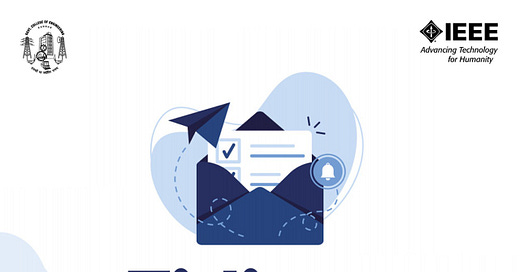

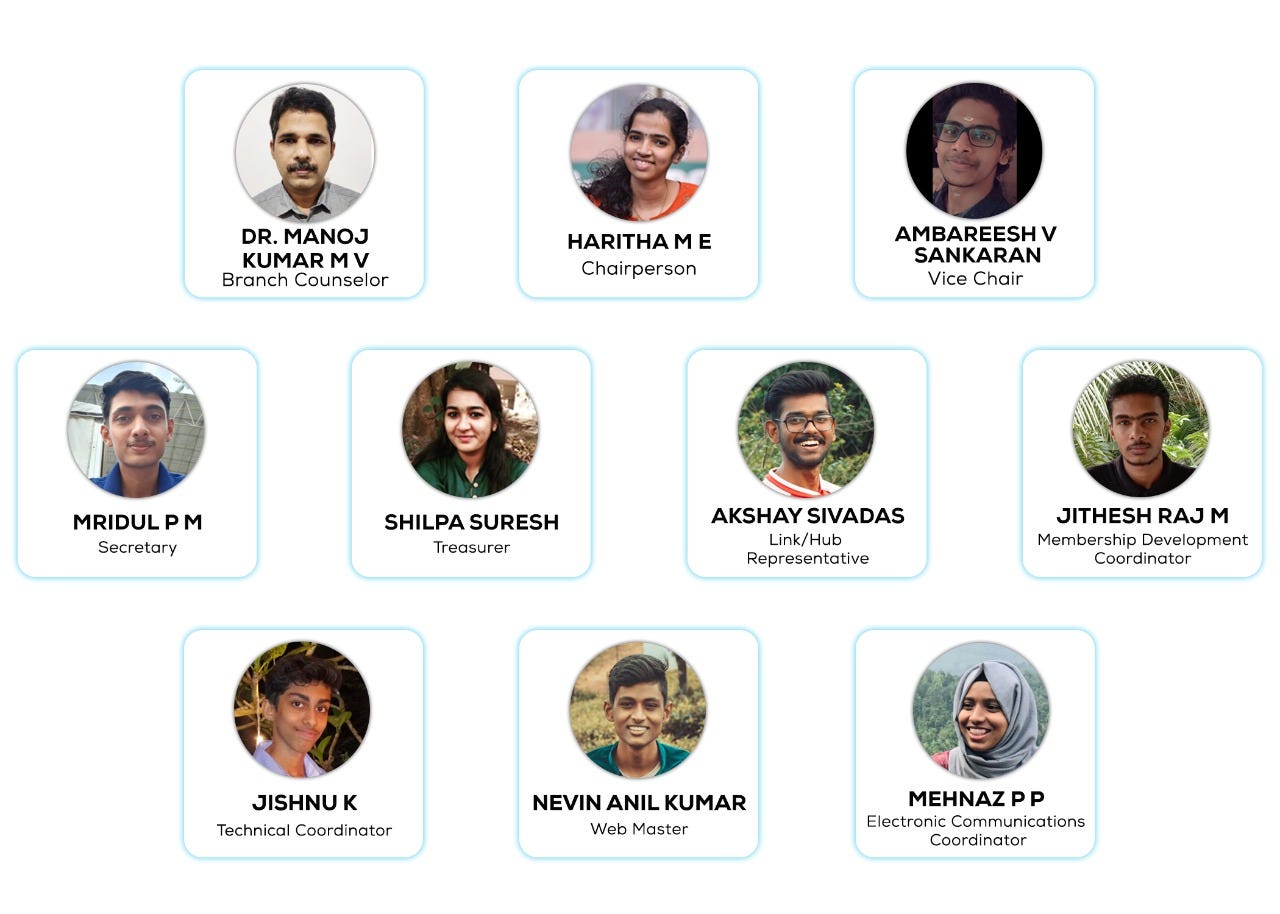
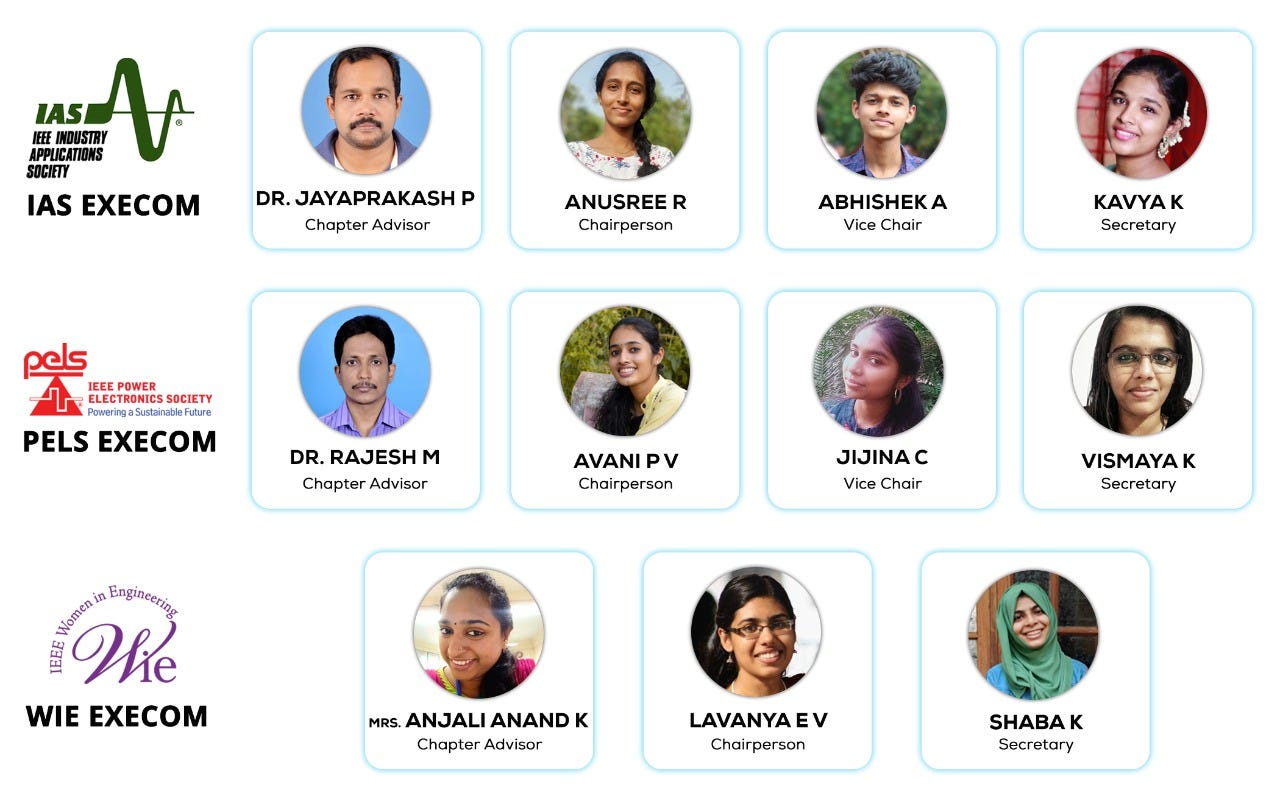


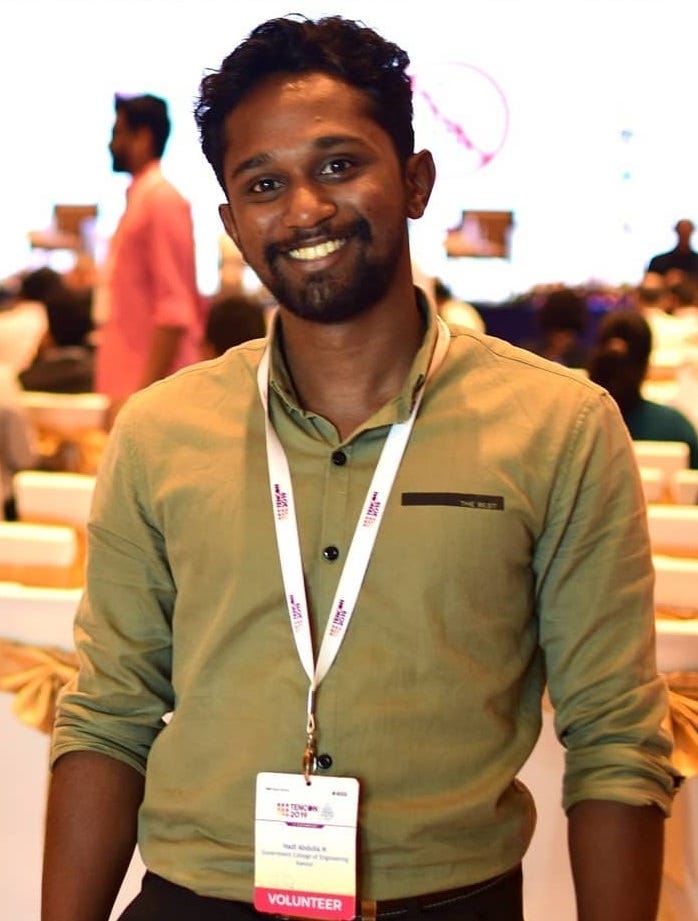

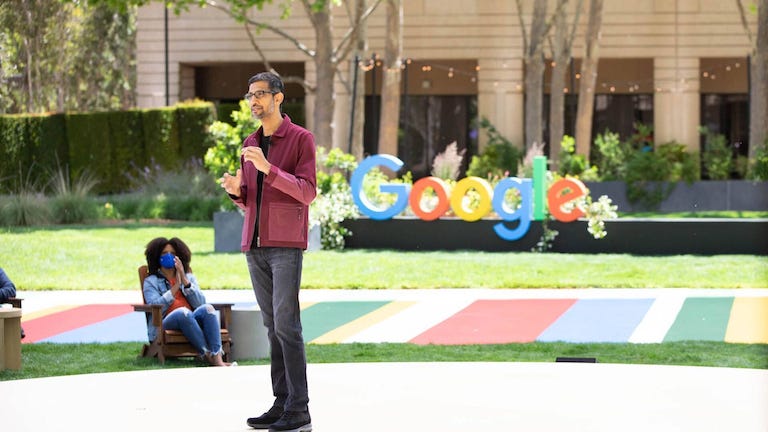

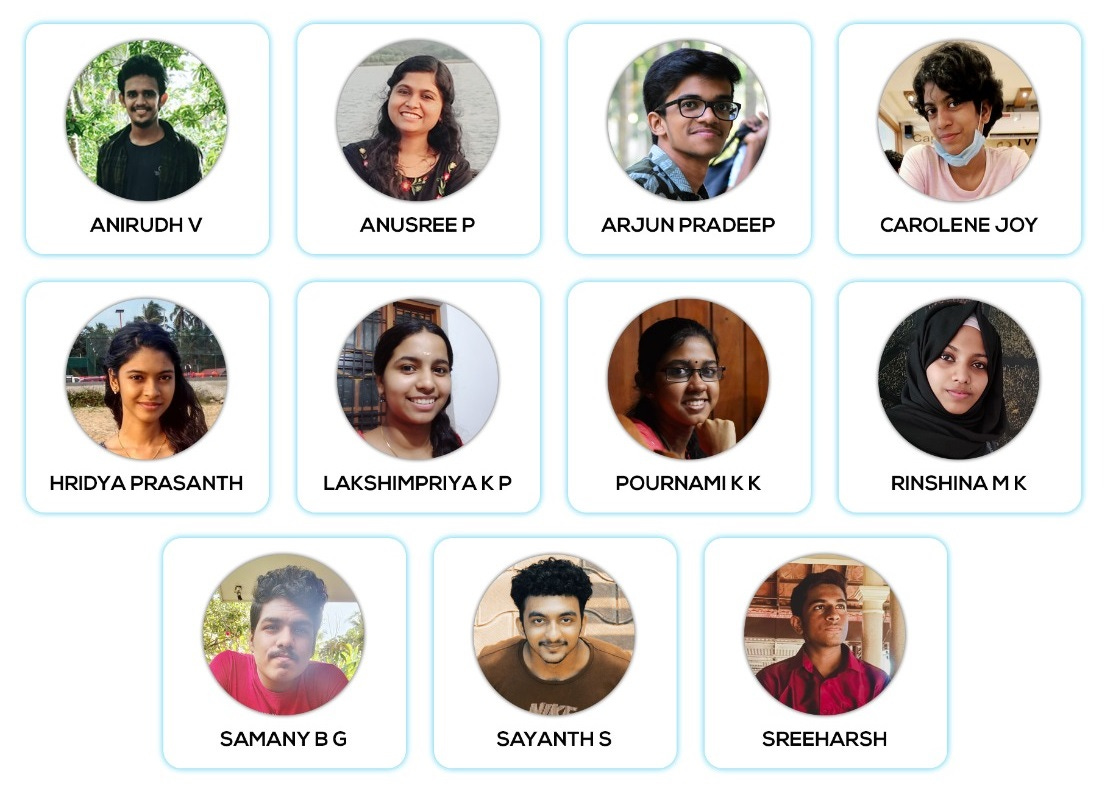
Super🤩
I loved the cryptocurrency bit, it was phenomenal, very informative, and very well written.